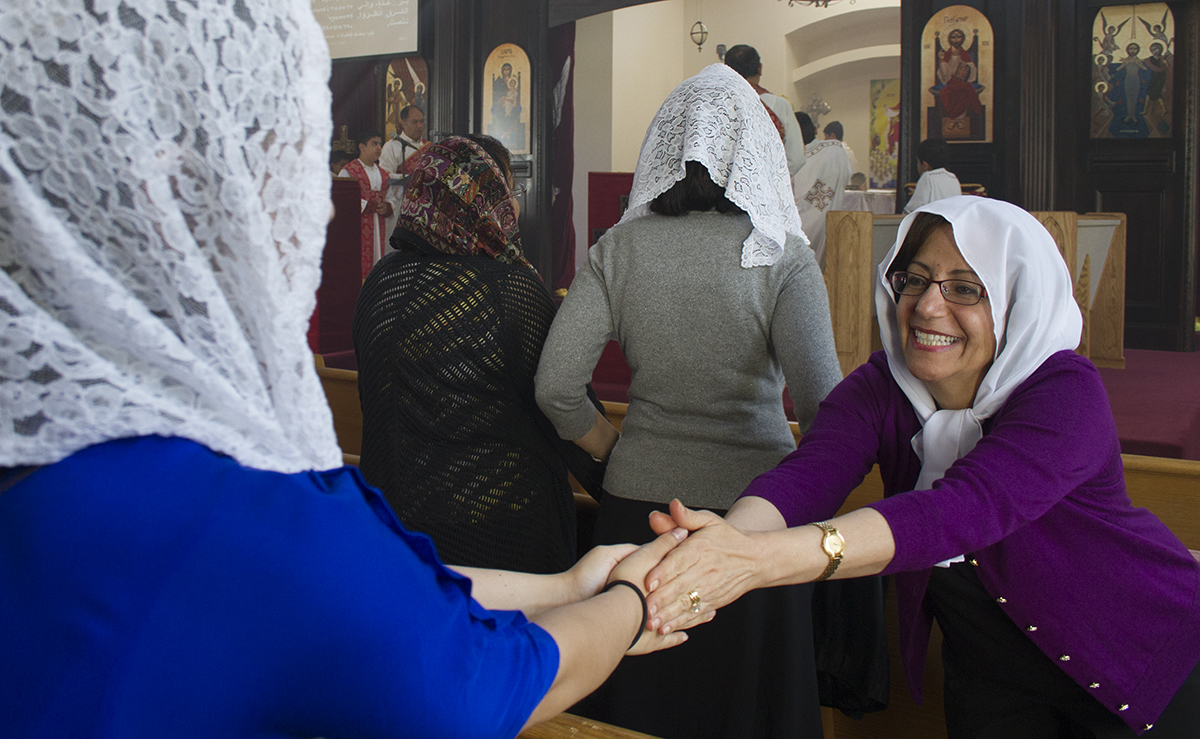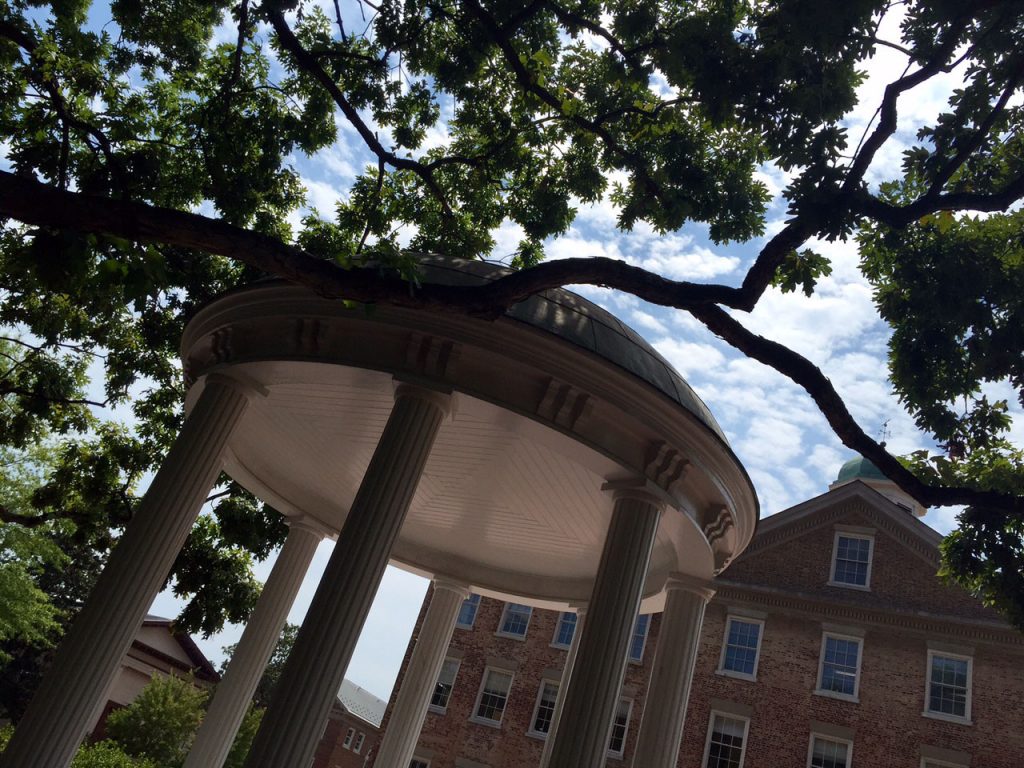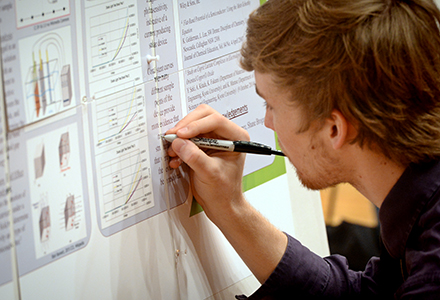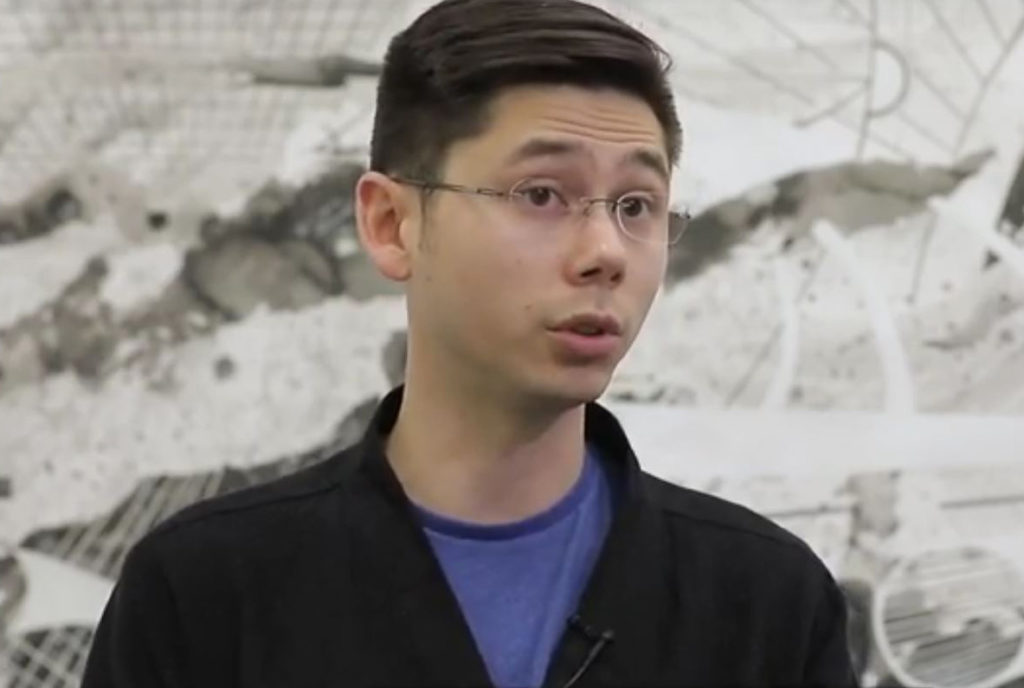
UNC student Ari Hires ’14 describes her opportunity to dig deeply into the Coptic Christian community of the country of Georgia as proof that academic aspirations can become reality.
“Sometimes you have a great idea, and a lot of hope, and this was one of those moments when my professors said to me, ‘Yes, that’s possible,’” Hires recalls.
Since then, Hires has been on a path to prepare her to engage with Coptic Christian communities throughout Georgia.
The Coptic Christians are one of the world’s oldest Christian communities, with Egyptian heritage, and Hires first began exploring these communities as part of a UNC photojournalism course assignment. She undertook the assignment in response to a national news story about Coptic Christian immigrants in the United States, feeling that the news piece didn’t answer critical questions about how they were living their day-to-day lives.
Hires had been meeting Egyptian and Christian friends at Carolina, laying the foundation for her growing interest in the Coptic Christian diaspora.
“When I found out there was a Coptic Christian community in North Carolina, I was very interested,” she recalls.
Through the connections she was making and in discussion with an academic advisor, she learned that Egyptian Coptic Christians were increasingly taking advantage of an offer by the country of Georgia, a former Soviet Republic, to apply for visas to move there. Georgia has long been home to Orthodox Christians, and it has been recognized for welcoming Coptic Christians who’ve fled persecution in nearby countries including Egypt.
Eager to expand her photo essay to include Coptic Christians in Georgia, Hires knew that she’d need to learn the Georgian language to gain the trust of local communities and delve deeper into the story. “When you are learning about languages, you are learning about culture as well,” she says.
While she’d studied Arabic at Carolina, she looked for opportunities to study Georgian too. This past summer, she studied Georgian at the SWSEEL Summer Language Workshop at Indiana University Bloomington.
Her summer studies were made possible through a U.S. Department of Education-sponsored Foreign Language and Area Studies (FLAS) award, allowing Hires to develop her language skills in preparation for her work in Georgia.
Hires, a native of Lorton, Va., remembers growing up in the multicultural environment close to Washington, D.C. She says she was familiar with issues of immigration and cultural integration locally, but she was intrigued by the ways in which the transition might be affecting the Coptic Christian community in Georgia.
Her study of the Georgian language at the summer language workshop at Indiana University Bloomington, with the support of UNC professors, provided her with the linguistic tools to help strengthen her cultural sensitivity to dig deeper into her global story.
About Foreign Language and Area Studies (FLAS) Awards
Each year, the U.S. Department of Education awards Foreign Language Area Studies (FLAS) funding to Global Area Studies Centers at the University of North Carolina at Chapel Hill. FLAS funds are awarded in a competitive process open to graduate and advanced undergraduate students to pursue foreign language and area studies for professional purposes. Learn more through the UNC Area Studies website.




